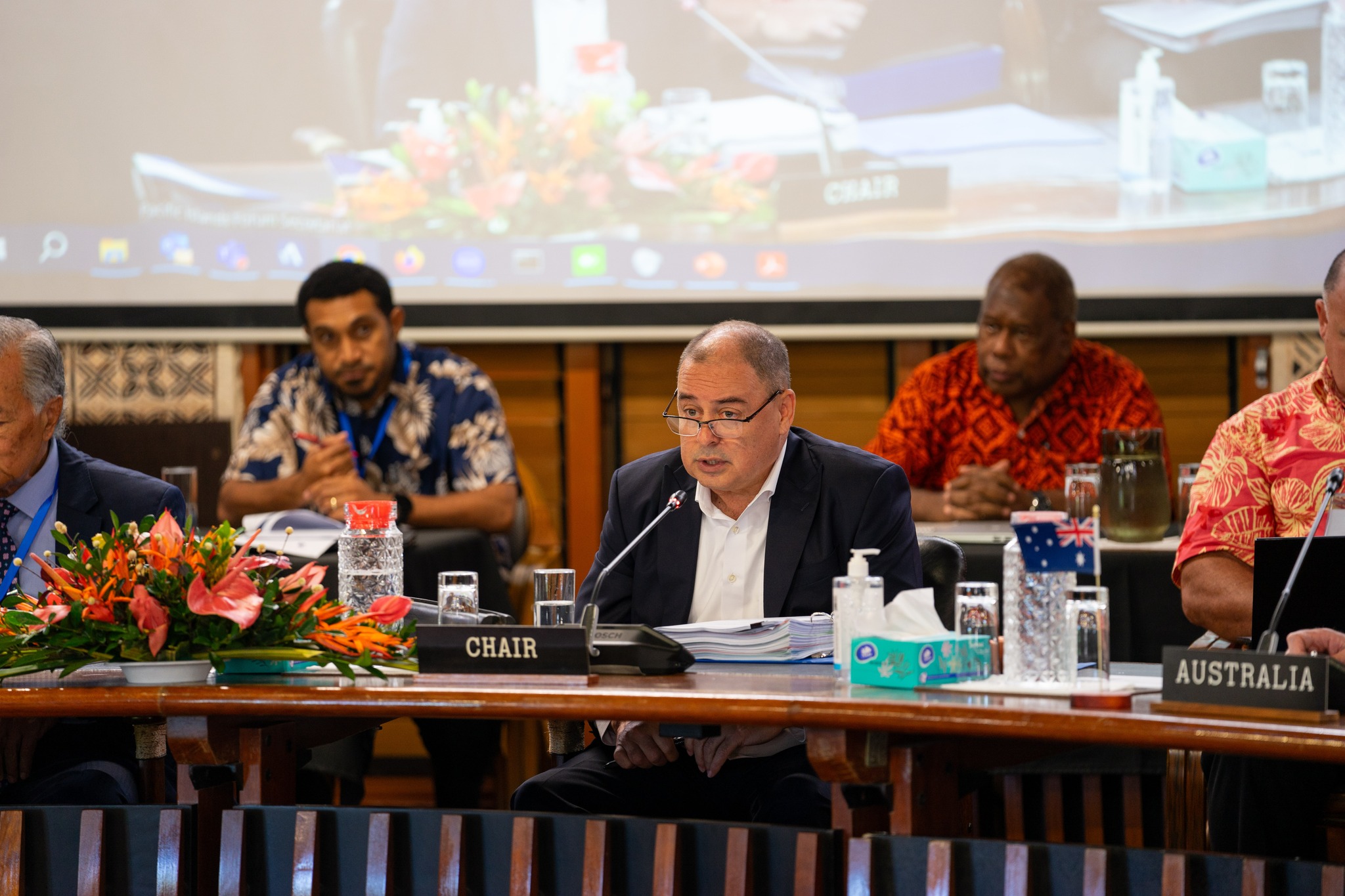PM Brown asks partners to get serious about debt and climate financing
Thursday 10 August 2023 | Written by Supplied | Published in Environment, Fiji, National, Regional

Prime Minister and Pacific Islands Forum (PIF) Chair Mark Brown speaking at the Forum Economic Ministers Meeting in Suva, Fiji, this week. PACNEWS/23080919
Cook Islands Prime Minister Mark Brown says if the region’s donor partners are serious about helping Pacific economies grow and recover, they “have to be serious about looking at changing the rules around financing, and debt management”.
The Pacific Islands Forum (PIF) Chair was speaking to Islands Business as Forum Economic Ministers meet in Suva, Fiji, this week.
Brown notes that many PIF members have come out of Covid with increased debt, with repayments set to spike in five-to-six years as grace periods end and says partners should “allow us to minimise the debt repayment periods over a staggered period of time without putting pressure on governments and economies to meet their debt servicing costs, at the expense of other areas that need financing”.
He also wants these donors to get behind the Pacific Resilience Facility, the regional financing facility designed to help Pacific nations build resilience in response to climate change.
That fund has a goal of US$1.5 billion (NZ$2.47b), and Brown says the US government’s US$2 million (NZ$3.3m) pledge towards it, “will help build up and strengthen this particular facility and add some credibility as a viable instrument for donor countries for funding it, to address climate issues”.
But he says the Facility would benefit from more high-level support.
“What would be useful is to get the likes of the World Bank to provide assurance over this particular modality that we’ve got in place, to give assurance to donor partners that if the World Bank is supportive of a facility like this, then surely there should be no excuse for them to be able to use it as a means of getting resourcing to those countries that need
[it]
.”
Speaking at a welcome ceremony earlier this week at the Forum Secretariat, the Chair referenced the Forum’s 2050 strategy, saying: “The Cook Islands would like to see Pacific Partnerships for Prosperity that will realise new finance flows into the region for climate change and weather ready investments; progress gender equality; reinvigorate the Rarotonga treaty for a nuclear free Pacific; strengthen cyber security; build scientific knowledge of our ocean; eliminate plastics from our environment; and address the challenges of labour mobility and climate mobility.”
Geopolitics and Pacific priorities
Brown says the positioning of the Pacific as “an area of competition between the likes of China or the U.S and the more traditional partners, but it would indicate to me then that some more traditional partners are not listening to what Pacific Island countries need, and what their development priorities are”.
He says while there are increasing concerns around security in the region, Pacific countries are concerned about economic and climate security, “and the sooner our development partners can understand and recognise that, and provide a means for us to be more economically secure, to be more climate resilient and climate secure, the less of a concern they will be around other security concerns that they are raising in terms of the increased presence of some of the donor countries in the Pacific countries.
“Some of these donors, the new and emerging donors like China, India, now Korea, Japan, many of these countries have been in the region for decades now. The fact that the likes of the U.S have not been present in the region in any substantive way, for a number of years, it shouldn’t be seen that Pacific countries are leaning to these countries or putting allegiances to these countries. Pacific countries are looking at who is willing to come in and provide assistance to meet our development agenda. To me, that’s pure and simple what it’s all about.”
- Samantha Magick/Source: Islands Business/Pacnews















































